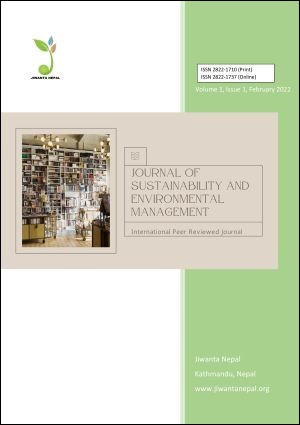Assessing Climate Change Vulnerability: A Conceptual and Theoretical Review
Keywords:
Assessment, Climate change, Indicator, Sustainable livelihood, VulnerabilityAbstract
The extensive scope of climate change research and the diversity of scientific traditions involved in vulnerability research have resulted in different conceptual definitions and theoretical conceptualizations of the climate vulnerability phenomenon. This diversity of interpretations has led to copious methods for operationalizing vulnerability as an analytical concept, i.e., frameworks and approaches for vulnerability assessments. This paper is intended to review literature on climate change vulnerability by exploring and synthesizing the various conceptual and analytical frameworks which is regarded to be important in the assessment of vulnerability to climate change. From the reviewed literature, several interpretation of the concept of climate change vulnerability as well as theoretical frameworks are brought to the fore. The paper further highlighted on the two well- known methodologies of estimating vulnerability in literature; the vulnerability variable assessment method and the indicator technique by espousing the merits and demerits of each approach. It is suggested that exploring integrated quantitative vulnerability assessment approach will enhance the understanding of climate change vulnerabilities.
Downloads
Downloads
Published
How to Cite
Issue
Section
License
Copyright (c) 2022 Danladi Yusuf Gumel

This work is licensed under a Creative Commons Attribution-NonCommercial 4.0 International License.
This license enables reusers to distribute, remix, adapt, and build upon the material in any medium or format for noncommercial purposes only, and only so long as attribution is given to the creator.




